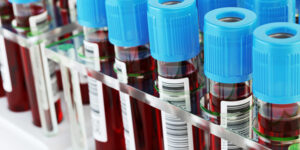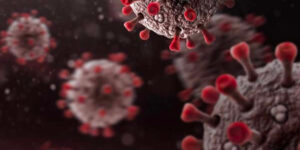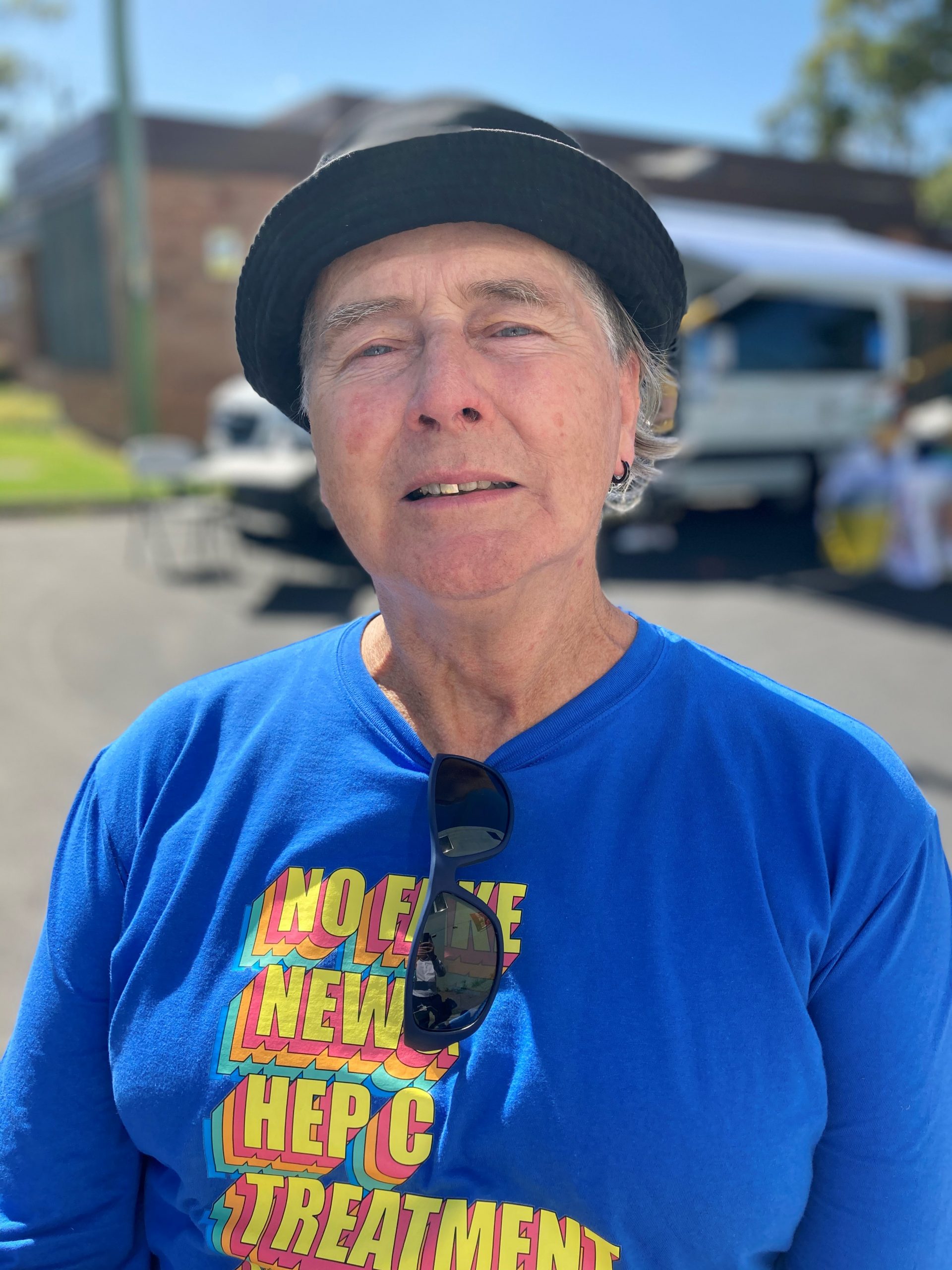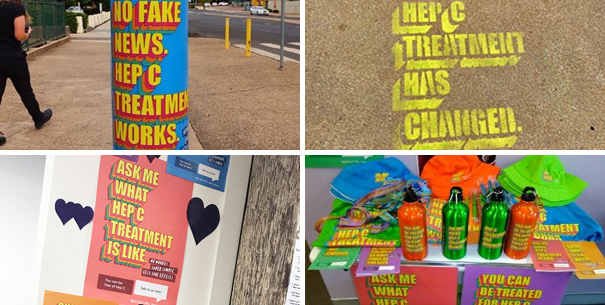The Champion #93 – February 2021
This issue:
- Hepatitis NSW presents case against Mandatory Disease Testing Bill
- COVID-19 vaccine and viral hepatitis
- New project in Western Sydney helping to end hep C
- And that’s a wrap on the Clearing The Path Campaign…

Hepatitis NSW presents case against Mandatory Disease Testing Bill

Hepatitis NSW provided evidence to a NSW Legislative Council Committee Inquiry into the Mandatory Disease Testing Bill 2020, on February 11, and spoke to our concerns related to this ill-conceived and flawed legislation.
We absolutely support frontline health and emergency services workers and collaborate with many of them every day through our work. They should not be subjected to unnecessary threats or risk as they go about their job.
The stated purpose of the Bill is to protect the health and wellbeing, in particular the mental health and wellbeing of frontline workers. Put bluntly, the Bill will not do what it sets out to achieve. Frontline workers mental health and well-being, if subject to some form of assault, will be achieved by them being informed and educated in advance and reassured by experts that, based on science and evidence, the likelihood of the transmission of a blood-borne virus as the result of spitting or skin contact with blood is non-existent. Ordering a mandatory blood test and relying on the result gives false reassurance. Getting assessed by a medical practitioner with knowledge of blood-borne viruses for risk of transmission quickly, supported through counselling and commencement of treatment protocols if appropriate is the way to go.
A major concern with the Bill is that it includes saliva within the definition of ‘bodily fluid’ which can be used to seek a mandatory testing order in the Bill. Hepatitis B and hepatitis C are blood-borne viruses requiring a viable point of entry and blood-to-blood contact. Neither of these viruses can be transmitted via saliva or spitting. Including saliva as a ‘bodily fluid’ is redundant and raises questions as to the real purpose of this legislation.
We are part of a concerted effort by the community, government, and health sectors to eliminate both hepatitis B and hepatitis C in New South Wales by 2028. Efforts to date have resulted in the hard won ongoing decline in prevalence of hepatitis B and hepatitis C. Both viruses now present a numerically small and ever diminishing health risk in NSW.
There is an effective cure for hepatitis C and a vaccination for hepatitis B. The hepatitis B vaccine can be used as a post-exposure prophylaxis in the unlikely event of transmission. This means the fear and worry, which this legislation validates, is unwarranted and not justifiable. Instead, rather than entrench stigma and discrimination, we need scientific, evidence-based information and education to reduce stress and anxiety for frontline workers who are at risk of incidents of exposure. This reflects New South Wales world leading approach and response to public health issues.
This Bill will make it harder to reach the very people we must still reach to make good on elimination.
The current system already places the health and safety of the worker at the centre of risk assessment and prevention. It prioritises evidence-based assessment, treatment, and care. In the event of an incident, focus should always be placed on access to immediate assessment of risk by a qualified health practitioner, counselling, and support to the person. This support would see the commencement of any recommended aftercare, including post-exposure prophylaxis.
It is important to state clearly and unambiguously that enacting this Bill will disproportionately and adversely impact an already disadvantaged population, notably street present and marginalised people – specifically Aboriginal and Torres Strait Islander people, as well as people who have substance dependence, gender identity, and mental health issues.
The Bill will effectively offer no increased peace of mind to frontline workers, but would instead expose predominantly marginalised individuals to unnecessary and invasive blood testing, potentially inflaming violent behaviour and increasing the risk of injury to both the alleged assailant and the frontline worker.
- Read our full media release>>> CLICK HERE
- Download our submission>>> CLICK HERE
- Read other submissions – NSW Parliament site>>> CLICK HERE
COVID-19 vaccine and viral hepatitis

Our Hepatitis NSW Infoline and online chat service has had many enquiries from people worried about how the new COVID-19 vaccines might affect their hep B situation or hepatitis C treatment. The very good news is that, not only in general but also specifically regarding people living with hep B and/or hep C, there is no need for concern with the COVID-19 vaccines.
Hepatitis NSW have consulted with our medical research advisory panel to make sure we have our facts straight and they have assured us the COVID-19 vaccines went through the same checks and balances required for all vaccines. Any concerns about “rushed vaccines” are unwarranted. Urgency caused by the rapid spread and impact of the coronavirus did mean clinical processes were sped up, but not without all safety checks and due processes being followed. All available evidence shows the new COVID-19 vaccines are safe and effective, regardless of if you have hep B or hep C. As always, please talk with your doctor about any issues or concerns, or chat to us for more information.
Get the COVID-19 vaccine when it’s offered, and hopefully we can see the back of the coronavirus… then it’s full steam ahead for the elimination of viral hepatitis!
New project in Western Sydney helping to end hep C

A NSW-first project run by Western Sydney Local Health District (WSLHD), with collaboration by Hepatitis NSW, is increasing diagnosis and treatment of hep C by taking free testing into the community. The ‘Focus Project’ is targeting key communities by driving the mobile testing van to methadone-dispensing pharmacies.
Hepatology clinical nurse consultant Kristen McKee (pictured right) started the targeted outreach program and said the results so far have been exceptional.
“In the first six pharmacy visits we conducted 220 blood tests with a 12-15 per cent prevalence of hepatitis C. That’s much higher than we normally see with any other testing. Most of these people had no idea, or if they had an inkling, probably would not have tested until they were very ill. They’re grateful for the accessible service,” Kristen said.
The mobile van allows for on-the-spot testing for hep C, with results available within the hour. Those who test positive are informed in person or via a phone call, and can have a full liver scan in the van and get a prescription for treatment – meaning that most never need to go to hospital.

Hep C treatments now have a greater than 95% cure rate and mean taking just one tablet daily for 8-12 weeks with no or minimal side effects.
The project is a collaboration between WSLHD, the Westmead Institute for Medical Research’s Storr Liver Centre and relevant pharmacies, with assistance from NSW Health Pathology and Hepatitis NSW.
Health promotion officer Anju Devkota compiled the initial data of 42 pharmacies providing methadone in the Western Sydney area, and hepatology staff reached out to pharmacists to see if any were willing to collaborate.
Hepatitis NSW peer support workers, including Wil Smith (pictured right), explain the purpose of the van to anyone nearby and encourage them to get screened.
“I have lived experience of hepatitis C,” Wil said. “In 2014, I was quite ill but my life has turned around since then. I like helping people. I like the result of getting people on treatment as their life is better as a result.”
- More info on the mobile service and other ways to access testing or treatment in western Sydney >>> CLICK HERE
- Read the original WSLHD article >>> CLICK HERE
And that’s a wrap on the Clearing The Path Campaign…

Summer is almost over, and like all good things that must come to an end, so is the Clearing The Path Campaign.
In November 2019 the campaign burst onto the Local Health District scene with uplifting, bright, pop art style posters, and advertising in 30 Needle Syringe Programs (NSPs) across NSW. It then expanded to 90 sites in January 2020. The campaign was placed in and around services attended by people who inject drugs, to address myths and misinformation from the old interferon days and start conversations for people to consider hep C testing and treating.
The campaign was revitalised in July 2021 around Hepatitis Awareness Week. Peer worker promotions, merchandise, and clinical services accompanied each burst of the campaign to keep the conversations buzzing. Nearby pubs, clubs, and venues took the washroom advertising, whilst street pole and laneway posters blasted out the messages, and street stencils on approach to the NSPs added to the fresh feel of the campaign.
Hundreds of people responded, gaining the confidence and support to take action. Since July 2020 (and post-COVID lockdown) Clearing the Path Hepatitis NSW peer worker’s promotion has delivered 22 service visits, engaged with 325 people who inject drugs, prompted access to 111 Dried Blood Spot hep C tests (DBS) and, due to the interactions, referred many people on for further healthcare. The Clearing The Path website hepC.org.au had 506 sessions (visits) and 1,075 page views (occasions of service), and people called the Infoline to find out about testing and treatment.
People took away 19,000 pens, 20,000 information C-Cards, 48,000 hand sanitiser bottles, 300 drink bottles, lanyards, and stickers. Our team and the staff at Local Health Districts got out there, wearing their campaign shirts and creating an ongoing presence that has built considerable trust and smoother pathways into health services for people who inject drugs.
A big “Thank you!” goes out to the campaign partners: NUAA and Ministry of Health; the Advisory Committee; and the teams out at the sites across NSW for making this happen despite the COVID pandemic. We’ve made new long term partnerships, working together to support people on their journey to hep C cure.










